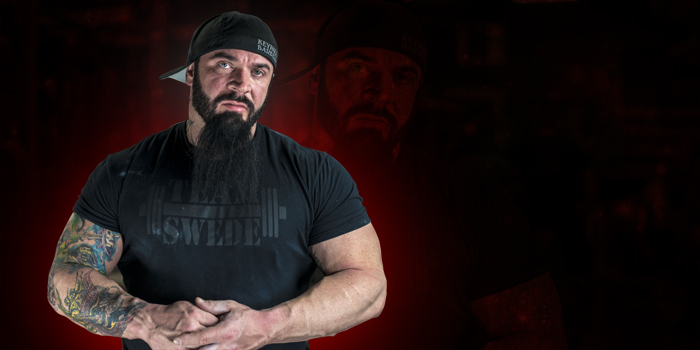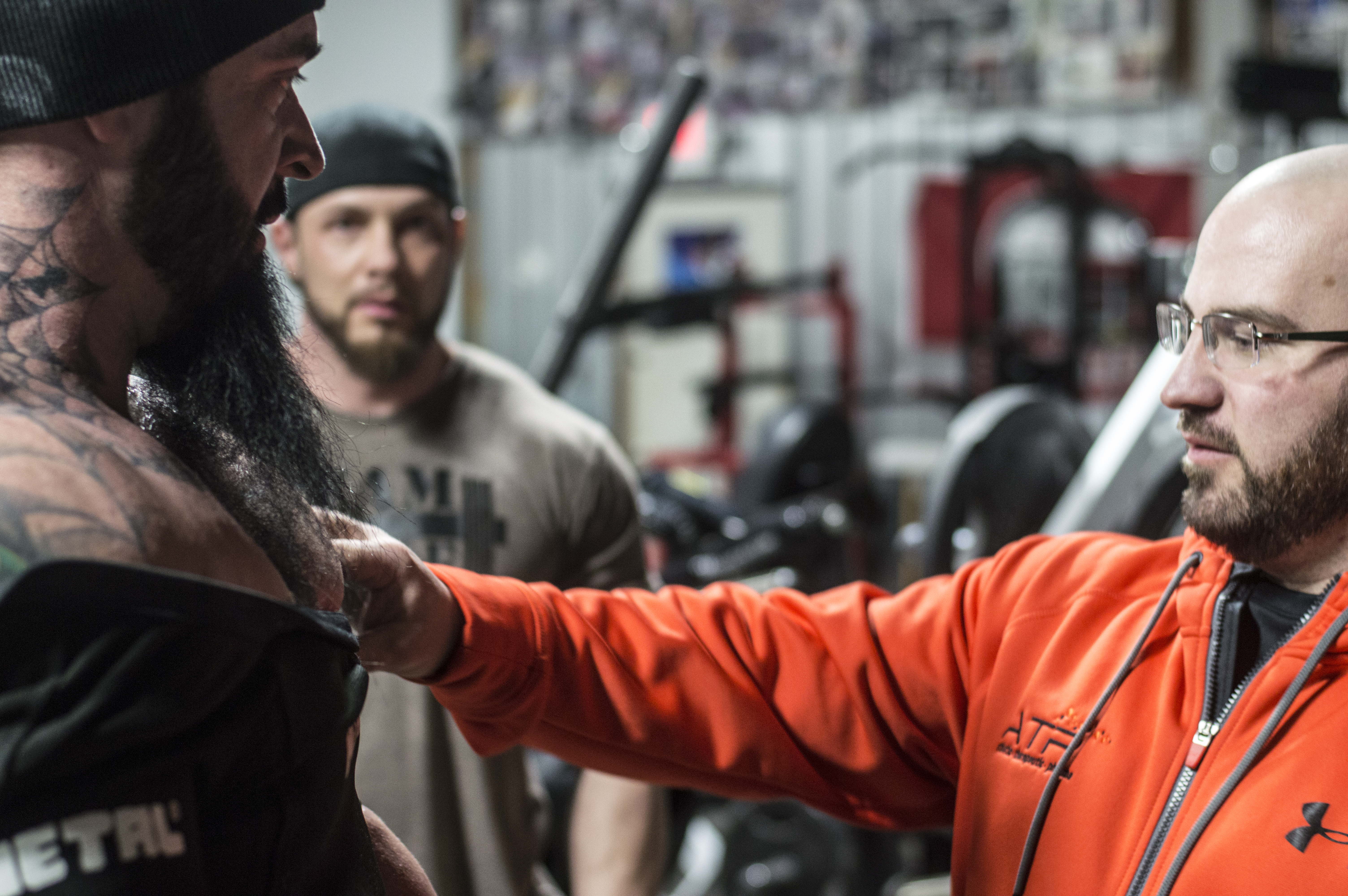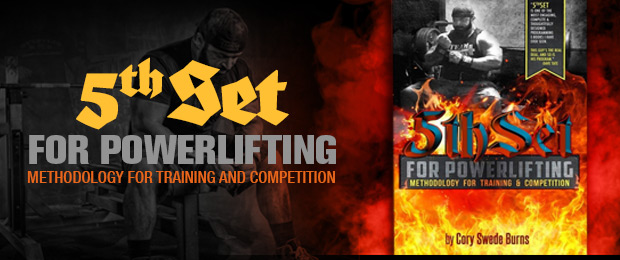
If you are a competitive powerlifter, a coach, an athlete of any kind, or even an academic, here is a question to consider.
Are you willing to be wrong?
Through the social media surveys regarding topics readers would like me to cover, there has been a recurring theme. Whenever I put one of these surveys up, you guys give me some great perspective, as well as some ideas I may never have considered. I always leave with at least four or five new subjects for the column. But what I also get pretty much invariably are readers asking me, in many different ways, what my biggest mistakes have been over the years.
It suffices to say that an entire series of novel-length memoirs would be necessary to cover them all. So to this point I have passed over that unwieldy subject and made simple mention of my specific past misjudgments as they've come up in covering the many topics I have. Something I didn't realize until recently is that there is one common thread, carefully woven through each of my many mistakes over the last 20 years of competing.
I knew too well, even when I didn't.
I was talking to a friend at dinner recently. Between bites, in the midst of devouring a figurative mountain of sushi, he asked me a really good question about the seminars I do with Brandon and Greg. How do we handle running the Reclaiming Real Strength seminars together, with the fact that our opinions differ on certain topics?
RECENT: The Obstacles You'll Face Becoming A Great Powerlifter
My answer was first that we have a very high level of earned respect for each other, and we all understand the fact that what each of us accepts as optimal has worked extremely well for many, many lifters. And anyway, we agree on 100% of the basics. The second part of my response, however was the meat of it. I told him that we made each other better coaches, because each of us was entirely willing to be wrong. We still don't know it all.
I say that last part all the time and it is usually met with the same response that I received during this conversation: a look of confusion. It's a fair reaction. As I began to explain myself, something I have said a hundred times really clicked and resonated and later resulted in some serious clarity for me. I said we know a tremendous amount on the subjects of training and competition in the sport of powerlifting, but we still don't know it all. No one really does. The difference is: we accept that we don't, and continue learning.
If you've ever heard the term "iron sharpens iron," this is the best example for it I can think of. For the same reason, I am grateful every day for the relationships I have with some of the best and most humble coaches in the world, on my team at elitefts. We are different types of swords, sharpening each other. We build off of one another's knowledge and experience. This is what successful people do in most any field.
Back to the dinner conversation. The topic changed and we all moved on. But as I thought more about what was said, it really sunk in that the reason I am doing so well I'm my life now can be summed up in the answer I gave. I'm willing to be wrong.
The same was the cause of most of my problems as a young man, in lifting and every other aspect of my life. And the thing is, I was totally blind to it. I was unwilling, to my core, to be corrected. I would rather get hurt than admit I was wrong. And I did, many times. Once that character defect changed, so did everything else.
I'm sharing this with you because, in my experience, lifters are mostly of the same psychology. We live and we learn, and sometimes we learn the hard way. However, we can choose to change the way we look at and approach things.
A good idea might be to inventory the opinions you have accepted to be true about training, performance or whatever, and ask yourself for each individual point: if someone told you they had reason to believe what you've accepted as fact was not entirely true or not true at all, would you be open to hearing why, or would you dismiss them as ignorant?
If we are too rigid in our beliefs, to the point of being closed-minded to other ideas, we are done learning. When we are done learning, we are soon done improving.
I am not saying we should give credence to every ridiculous idea we hear or question the fundamental concepts which have been proven beyond any doubt to be true. We can hold fast to the things we have good reason to believe, but we should always be willing to consider the possibility something has been missed, or that a different idea has merit.
Our own personal experience with ourselves can be very important in understanding the way that we operate. However, that information, by itself, is really only applicable to us individually. Stubbornness in the face of a logical argument against what we have already accepted to be true is an attitude which can be a breeding ground for avoidable errors of every nature.
I have found that the things I've learned from observing and working with so many other people has taught me more about myself than I ever expected it would at the onset. At this point in my career as a lifter, I try to remain coachable, and as a coach, I try to remain teachable. I accept that doing so allows me to continue to improve at both.
MORE: Mistakes 101: Schedule Inflexibility
In other articles I've mentioned how the things I was certain everyone was wrong about, two years into my training, I later realized were spot on. Sometimes I wonder what things would be like for me now if I stopped learning eighteen years ago. What if I clung more tightly to the things I thought I knew?
How many people have I been able to help, because somewhere along the way my own eyes were opened enough to be humbled and learn? It's worth mentioning that much of what I have learned was from lifters less talented and coaches less knowledgable than myself. I have something to learn from almost everyone and I am always trying to remind myself of that.
The best statement I can give on the subject of the mistakes I have made is that the specific mistakes themselves are not the most important thing. We will make mistakes and once we do, those bells have been rung. That milk has been spilt. We can neither unring, nor unspill them. We must simply shake those losses off and, one foot in front of the other, drag our shadows down the road. The far more important business is that we do not allow ourselves to be stuck in a mindset that can itself cause these blunders to become habits.
I did write an entire series of articles called "Mistakes 101," documenting the most common misjudgments I have seen in my career. If you want some review in terms of things to avoid, go read some of those.
If this article gave you pause at all, or made you question whether or not you are being too close-minded in your opinions or beliefs: good. That's probably the best thing I could ever hope to do for you. Until next time, I hope you have enjoyed and, as always, please share.












2 Comments